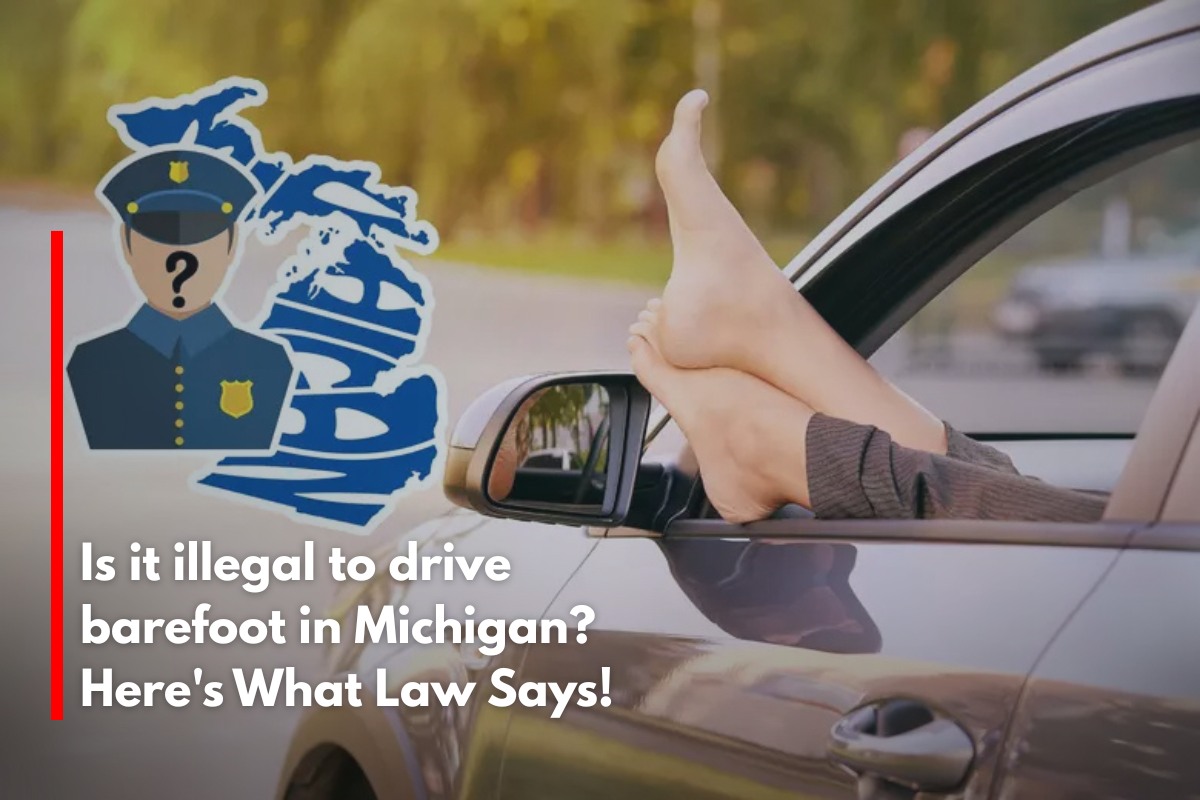In Michigan, driving barefoot is completely legal. There are no state laws that prohibit driving a motor vehicle without shoes or any footwear. Despite common misconceptions, authorities confirm that you can operate your vehicle barefoot just as legally as if you were wearing any type of shoe.
Common Myths Debunked
Many people believe driving barefoot is illegal or unsafe, but this is an urban legend. Police officers and the Michigan State Police Traffic Service Section have stated that barefoot driving is not grounds for a citation or fine. They even suggest that, in some cases, barefoot drivers may have better pedal control than those wearing inappropriate footwear like high heels or flip-flops.
Safety Considerations When Driving Barefoot
While legal, driving barefoot can present some safety concerns:
Less Grip: Bare feet can slip off the pedals, especially if they are wet or sweaty.
Less Braking Power: Shoes provide a stable surface to press brakes; barefoot may reduce force applied.
Risk of Injury: In the event of a crash, bare feet are more vulnerable to injury from footwell debris or airbags.
Delayed Reaction: Footwear can sometimes improve reaction time by offering better pedal feel and grip.
Despite these risks, authorities agree that these concerns do not make barefoot driving illegal.
Comparison of Driving Barefoot vs. Wearing Shoes
Certain types of footwear can be more hazardous than driving barefoot, such as:
Flip-flops, which can easily slip off and get caught under pedals
High heels or thick boots, which may hinder pedal movement or grip
Experts suggest thin-soled, closed-toe shoes with rubber soles as the best driving footwear. If barefoot is preferred, it’s essential to ensure feet are clean and dry to maximize pedal control.
When Could Driving Barefoot Become a Legal Issue?
Although Michigan law does not ban barefoot driving, if operating the vehicle without shoes leads to reckless or unsafe driving, it could become a factor in a citation or accident liability. For example:
Losing control of the vehicle due to lack of proper grip.
Failing to brake timely or effectively.
Contributing to swerving or erratic driving behavior.
In such cases, authorities could penalize the driver under reckless driving or negligence laws—not because of barefoot driving itself, but due to unsafe operation of the vehicle.
What Should You Keep in Mind?
Driving barefoot in Michigan is legal.
Consider the safety disadvantages and weigh whether barefoot driving suits your comfort and control.
Avoid hazardous footwear like flip-flops or high heels, which may impede safe driving even more.
If you’re involved in an accident, be aware that barefoot driving might be examined in determining fault or negligence.
Michigan drivers are free to drive barefoot without fear of breaking the law. While it’s largely a matter of personal preference, wearing appropriate footwear is advisable to optimize safety on the road. If choosing to go barefoot, do so with awareness of the potential risks and ensure you maintain full control of your vehicle at all times. Understanding these facts also helps dispel the myth that driving barefoot is illegal in Michigan, reinforcing your right to choose how you drive legally and safely.
Sources
(https://getdavidgetpaid.com/is-it-illegal-to-drive-barefoot-in-michigan-what-the-law-says/)
(https://francisinjury.com/blog/is-it-illegal-to-drive-barefoot/)
(https://www.1800leefree.com/personal-injury-lawyer-flint/biggest-michigan-driving-myths/)
(https://wbckfm.com/barefoot-driving-legal-michigan/)
(https://expresslegalfunding.com/is-illegal-drive-barefoot/)











